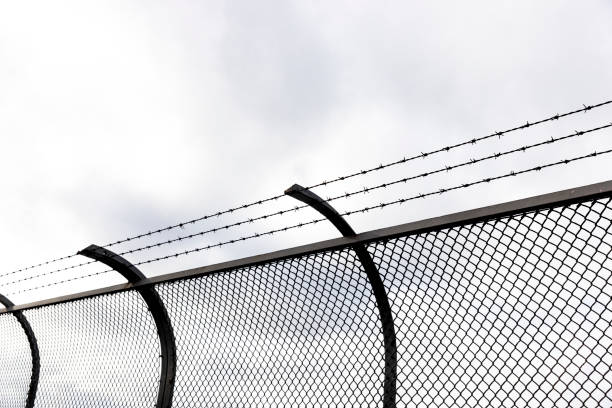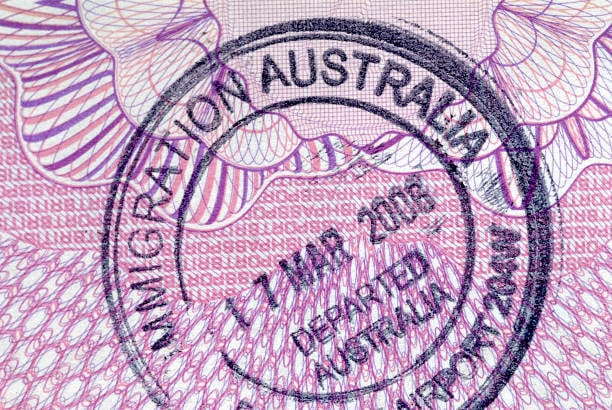This article will discuss sections 207 to 216 of the Migration Act 1958, which provides for the rules on the costs of removal or deportation of non-citizens in Australia.
Australia has strict laws and policies regarding the removal and deportation of non-citizens, particularly those who have committed criminal offences or are in the country without a valid visa. These laws are necessary for national security and public safety.
Interpretation of Terms
Before we discuss the subsequent provisions, below is a definition of terms under section 207 that you need to know to have a better understanding.
What does a “carrier” mean? Carrier, in relation to an unlawful non-citizen, means a controller of the vessel on which the non-citizen last came to Australia. Who is a “controller”? A controller, in relation to a vessel, is the master, owner, agent or charterer of the vessel.
“Costs” means the fares and other costs to the Commonwealth of transporting a non-citizen; and a custodian of the non-citizen from Australia to the place outside Australia where the non-citizen faces removal or deportation.
Section 210 and 212: Costs of Removal or Deportation of Non-citizens
Subject to section 212, section 210 provides that a non-citizen who faces removal or deportation, other than an unlawful non-citizen who came to Australia on a criminal justice visa, is liable to pay the Commonwealth the costs of removal or deportation.
In section 212, the Migration Act contemplates three scenarios and rules regarding the costs of removal or deportation of non-citizens’ spouses, partners, or dependants:
- If two persons are spouses or de facto partners of each other and authorities remove or deport both of them, or deport one of them, and remove one of them, each of them is liable to pay the Commonwealth for the costs of their removals, their deportations, or the deportation and removal.
- If two persons are spouses or de facto partners of each other:
- authorities remove or deport both of them, or
- they deport one and remove the other
authorities remove their dependent child, or dependent children, within the meaning of the regulations. In this scenario, the child or children are not liable to pay the Commonwealth the costs of the child’s or children’s removal. The liability to pay the Commonwealth the costs of deportation or removal falls on those persons.
- If the removed or deported non-citizen does not have a spouse or de facto partner but has a dependent child or children, the child or children are not liable to pay the Commonwealth for the costs of such removal. It is the removed or deported non-citizen who is liable to pay such costs.

Section 213, 214, and 215: Liability of Carriers for Costs of Removal and Deportation; Joint Liability of Carrier and Non-Citizens
As we mentioned earlier, carriers are the controllers of a vessel in which a non-citizen last came to Australia. This section imposes a liability on carriers for the costs of removal or deportation of non-citizens.
Here’s the rule: The Secretary or Australian Border Force Commissioner may give a carrier of the non-citizen a written notice requiring the carriers of the non-citizen to pay the costs of the non-citizen’s removal, or deportation from Australia should that happen:
- If a non-citizen who enters Australia must comply with section 166 (immigration clearance) and one does not comply.
- If a non-citizen who enters Australia complies with section 166 but is detained under section 189 as an unlawful non-citizen.
The Secretary or Australian Border Force Commissioner should be given notice of the circumstances mentioned above. The purpose of such notice is to:
- give particulars of the calculation of the costs; and
- state that an account for the costs will be given to at least one of the carriers of the non-citizen when they have been incurred.
Moreover, if a notice is given, each carrier of the non-citizen is liable to pay the Commonwealth the costs described in the notice and for which an account is given.
Section 214 also states the joint liability of carriers and non-citizens. If two or more persons are liable to pay the Commonwealth the costs of a non-citizen’s removal or deportation, they are jointly and severally liable to pay those costs.
Lastly, section 215 provides, without limiting any other provision of this Act, the Commonwealth may recover costs payable to them by a person as a debt due to the Commonwealth in a court of competent jurisdiction.
Section 216: Use of Existing Ticket for Removal or Deportation
The Secretary or Australian Border Force Commissioner may, on behalf of the ticket holder, arrange (with or without the ticket holder’s consent) for the ticket to be applied for or towards the conveyance of the non-citizen if the non-citizen is to be removed or deported and he or she has a ticket for the conveyance of the non-citizen from a place within Australia to a place outside Australia.

Talk to a Migration Lawyer Today
Migration lawyers play a crucial role in assisting non-citizens facing removal or deportation in Australia. They can also help them understand the costs of removal or deportation. Here are some things that a migration lawyer can do for non-citizens facing removal or deportation:
- Provide legal advice to non-citizens facing removal or deportation
- Represent clients in court during removal or deportation proceedings
- Challenge deportation orders issued by the Minister for Immigration.
- Apply for visas that may allow them to stay in Australia
- Negotiate with the Department of Home Affairs on behalf of their clients. They can seek to resolve issues that may lead to removal or deportation, such as visa cancellations or character concerns.
- Provide support and guidance to non-citizens facing removal or deportation
Removal or deportation cases in Australia can be complex and challenging, especially for non-Australian citizens. Therefore, seeking legal advice from a migration lawyer at JB Solicitors is highly beneficial for non-citizens facing removal or deportation.
Contact us today, and we’ll see what we can do for you.
